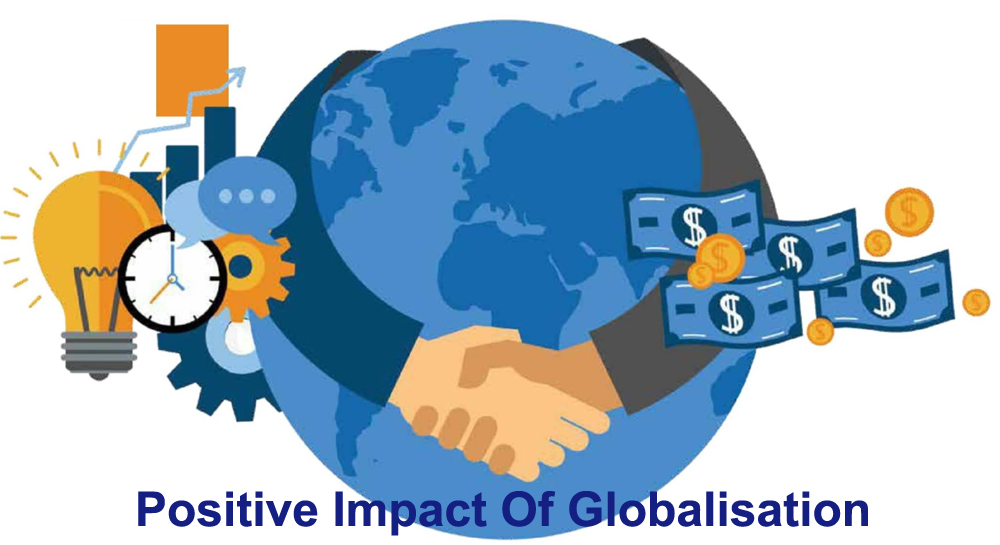The Benefits of Globalization: Unveiling the Power of Connectivity
Globalization has become an integral part of our modern world, transforming the way we live, work, and interact. In this article, we explore the numerous benefits that globalization brings to individuals, businesses, and economies alike. As a leading authority in SEO and high-end copywriting, we have crafted this comprehensive guide to help you understand and appreciate the positive impact of globalization.
Enhanced Economic Opportunities
One of the key advantages of globalization is the expansion of economic opportunities. By breaking down trade barriers and promoting international cooperation, globalization allows businesses to access larger markets and tap into a global customer base. This increased market reach leads to enhanced sales, higher profits, and sustainable growth. Moreover, globalization fosters competition, which drives innovation and efficiency, ultimately benefitting consumers with better products and services.
Increased Cultural Exchange
Globalization has revolutionized cultural exchange, enabling people from different parts of the world to connect, share ideas, and learn from one another. Through the exchange of art, music, literature, and cuisine, diverse cultures can be celebrated and preserved. This cultural intermingling promotes tolerance, understanding, and appreciation of our global diversity, fostering a more inclusive and interconnected world.
Technological Advancements
Globalization and advancements in technology go hand in hand, with each fueling the progress of the other. As countries collaborate and share knowledge, breakthroughs in science, medicine, and technology are accelerated. This leads to improved healthcare, increased access to education, and the development of innovative solutions to global challenges. The interconnectedness brought by globalization has also facilitated the rapid dissemination of information, connecting people across continents and empowering individuals with knowledge.
Efficient Resource Allocation
Globalization allows for the efficient allocation of resources on a global scale. Countries can specialize in producing goods and services that they have a comparative advantage in while importing those that are more efficiently produced elsewhere. This specialization leads to increased productivity, lower costs, and a more efficient allocation of resources, benefiting both producers and consumers. By promoting global supply chains, globalization has enabled businesses to access resources and expertise from around the world, driving economic growth and development.
Environmental Collaboration
Global challenges such as climate change and pollution require global solutions. Globalization has facilitated international cooperation and collaboration in addressing these pressing environmental issues. Through global agreements and initiatives, countries can work together to mitigate the negative impacts of industrialization and promote sustainable practices. By sharing knowledge, technology, and best practices, globalization enables us to tackle environmental challenges collectively, ensuring a healthier planet for future generations.
The Power of Connectivity
Globalization, at its core, is about connectivity. It connects people, businesses, and nations, fostering a sense of shared responsibility and interconnectedness. By embracing globalization and harnessing its benefits, we can create a world that is more prosperous, inclusive, and sustainable. It is through collaboration, understanding, and appreciation of our global interdependence that we can navigate the challenges and seize the opportunities that globalization presents.

Frequently Asked Questions
1. What is globalization?
Globalization refers to the increasing interconnectedness and interdependence of countries through the exchange of goods, services, information, and ideas on a global scale.
2. What are the benefits of globalization?
Globalization offers several advantages, including:
Increased economic growth and prosperity
Access to a wider variety of goods and services
Enhanced cultural exchange and diversity
Technological advancements and innovation
Improved living standards and quality of life
3. Does globalization create jobs?
Yes, globalization can create new job opportunities by opening up markets and attracting foreign investment. However, it can also lead to job displacement in certain industries as companies seek cost-effective alternatives.
4. How does globalization affect the economy?
Globalization can positively impact the economy by promoting trade, increasing productivity, and attracting foreign direct investment. It can also lead to economic inequality and volatility, especially in developing countries.
5. Does globalization benefit developing countries?
Globalization can bring several benefits to developing countries, such as access to new markets, technology transfer, and foreign investment. However, it can also exacerbate income inequality and exploit cheap labor in some cases.
6. What role does globalization play in cultural exchange?
Globalization facilitates cultural exchange by enabling people from different parts of the world to interact, share ideas, and learn from each other’s traditions and practices. It promotes cultural diversity and understanding.
7. Can globalization lead to environmental degradation?
Globalization can contribute to environmental degradation due to increased production, transportation, and consumption. However, it can also foster international cooperation and knowledge sharing to address environmental challenges.
8. How does globalization impact education?
Globalization has expanded educational opportunities through international student exchange programs, online learning platforms, and collaborations between institutions. It allows students to gain a global perspective and access a broader range of knowledge.
9. Does globalization affect healthcare?
Globalization can positively impact healthcare by facilitating the sharing of medical knowledge, resources, and best practices across borders. It can also lead to health risks, such as the rapid spread of infectious diseases.
10. What are the potential drawbacks of globalization?
Some potential drawbacks of globalization include income inequality, job displacement, cultural homogenization, environmental degradation, and the exploitation of labor. However, these issues can be addressed through proper regulations and policies.




